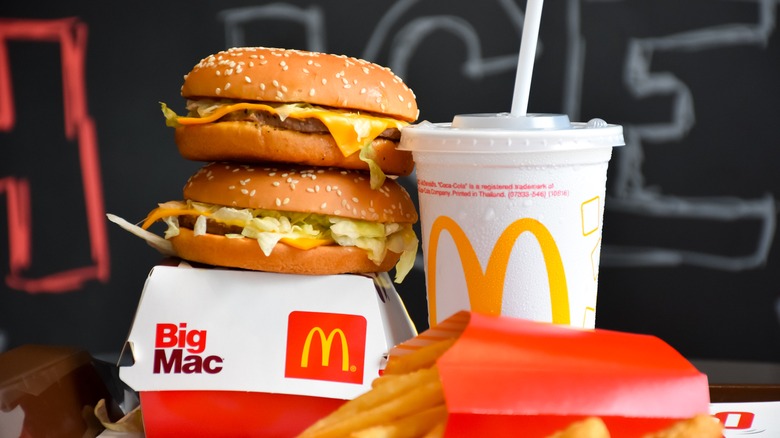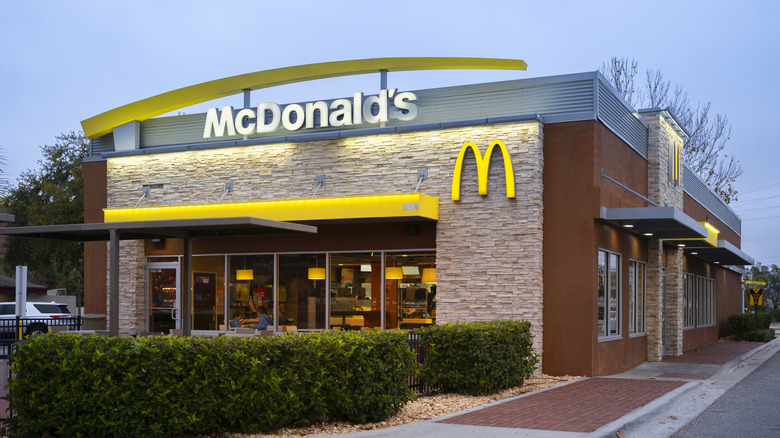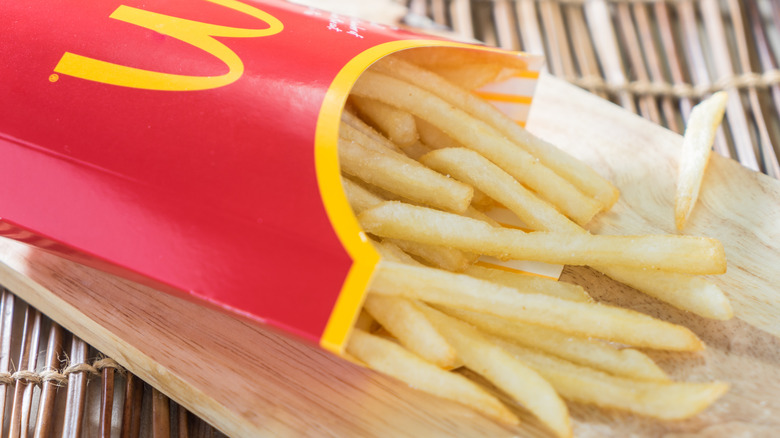Why Some McDonald's Locations Sell Random, Unofficial Food Items
McDonald's is a company known for its standardization; its commitment to minute fast food science details is one of the main reasons that it's the largest fast food chain in the world. From its in-house ketchup to the proprietary system for chilling and serving soda (it really does taste different at McDonald's) to being hyperspecific about what kinds of potatoes it uses for its fries, this is a company that pays attention to the details. So why, then, do certain McDonald's locations sell unexpected food items that you can't find in other places? Why will there be a random McDonald's in, say, Peoria, Illinois that sells lasagna? It turns out, the answer is basically because it makes franchisees money and they think they can get away with it.
McDonald's corporate is not happy about it when stores do this, so it's typically not a company-approved move. That's right: You're dealing with rogue McDonald's franchisees.
Local franchises want to make more money
Mike Haracz is a former McDonald's corporate chef known for explaining company ins and outs on TikTok — things like how the chain seasons its burgers, why it will never sell onion rings, and whether there is ketchup in Big Mac sauce. (There is not). Recently, he shared his thoughts on rogue McDonald's that sell unapproved menu items.
Watch on TikTok
It turns out, while McDonald's may want to stop the local stores from selling tuna salad or turkey pot pie, actually keeping it off menus is a little more difficult for them. There are some gray areas in the McDonald's franchise contracts, so while McDonald's corporate certainly wants more influence, it simply might not be able to issue an order from on high and banish that blueberry pie from your local golden arches.
These aren't official menu items these stores somehow hung onto; that would be impossible since those official items would be produced at a central location and sent to stores (or at least the ingredients would be). This, instead, is franchisees deciding a certain menu item that might not do well in the national market will do absolute gangbuster business in their own specific area. Restaurants are a razor-thin profit margin business, so any edge can be the difference between keeping the lights on or losing your shirt. This is particularly important in the case of McDonald's because of how badly they squeeze their franchisees.
McDonald's lease structure makes things difficult for franchisees
It's true that McDonald's is a hugely profitable endeavor, but most of that profit goes to the company thanks to the structure by which it wrings franchisees: triple net leases. Under a triple net lease, a franchisee is responsible not just for rent, but for property taxes, insurance, and — crucially — maintenance and repairs. Mickey D's isn't the only fast food restaurant that does this (Burger King often uses it too), but it's the biggest name in the fast food game. Couple that with the company's never-ending 4% monthly gross sales squeeze (that's total gross, not profit, a rarity for the industry), and the margins start to get a bit thin.
Given this, it makes sense that franchisees would be looking for ways to make money however they can. As for whether they can get away with it, it all depends on the contract of the franchisee in question, since franchise contracts aren't universal. According to Mike Haracz, the largest McDonald's in the world in Orlando has a loophole that allows them to put whatever they want on their menu — but certain other locations are just doing it and daring the company to stop them. Theoretically, they could in some cases.
So if you really enjoy your local McDonald's weird menu item, you should get it while you still can. The company might get it off the menu entirely soon enough.


